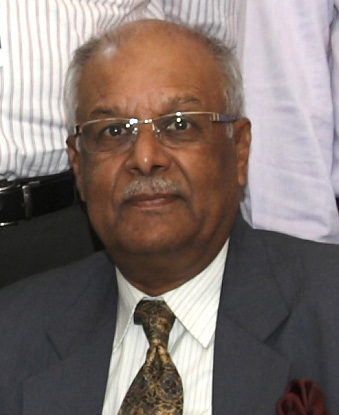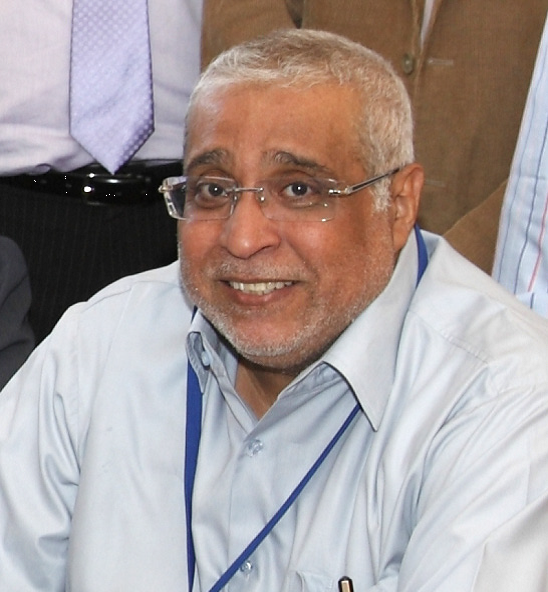India’s links with the GCC at present are made up of energy, trade and communityrelated ties. The GCC countries provide about 50 per cent of India’s oil imports with Saudi Arabia being the largest single supplier; if Iran and Iraq are taken in account, India’s supplies from the Gulf are around 80 per cent. Again, Qatar is the principal supplier of imported gas to India. In regard to economic ties, the GCC is India’s number one trade partner in terms of economic groupings, while the UAE is India’s number one trade partner on country-wise basis and as the leading destination of Indian exports. The Indian community in the six countries of the GCC numbers about six million, and is the preferred community in every GCC country. This community remits to India about $32- 35 billion annually.
3 DAYS / 12 Workshops
MORE THAN 300 ACADEMIC PAPERS
India’s links with the GCC at present are made up of energy, trade and communityrelated ties. The GCC countries provide about 50 per cent of India’s oil imports with
Saudi Arabia being the largest single supplier; if Iran and Iraq are taken in account,
India’s supplies from the Gulf are around 80 per cent. Again, Qatar is the principal
supplier of imported gas to India. In regard to economic ties, the GCC is India’s number
one trade partner in terms of economic groupings, while the UAE is India’s number one
trade partner on country-wise basis and as the leading destination of Indian exports. The
Indian community in the six countries of the GCC numbers about six million, and is the
preferred community in every GCC country. This community remits to India about $32-
35 billion annually.
Over the last few years, India’s ties with the Gulf countries have been going through
major changes. Between 2005 and 2007, all the GCC countries indicated a deep interest
in enhancing political and economic ties with India as manifested by the visits to India of
the Heads of State/ Heads of Government of all the GCC countries, and regular visits by
Indian leaders and Ministers to the region. This India-GCC interaction climaxed in
February 2010 in the signing of the Riyadh Declaration by the Indian Prime Minister, Dr.
Manmohan Singh, and the Saudi monarch, King Abdullah bin Abdul Aziz Al-Saud,
which envisaged the realization of “a new era of strategic partnership.”
However, India also has substantial ties with Iran: Iran is the second largest supplier of
oil to India and is therefore important for its energy security interests. Again, Iran is
central to the safeguarding of India’s interests in Afghanistan. It is also one of the
gateways for movement of Indian goods to Central Asia, Russia and Europe along the
North-South corridor from the Iranian port of Bandar Abbas to the Caspian Sea region,
and then north to Russia and Europe.
As India’s ties with the Gulf region evolve to a strategic level, several enduring and new
issues need to be addressed:
• Energy
• Economic interests
• Nuclear issues
• Maritime issues
• Defense and security ties
• Regional aspirations consequent on the “Arab Spring”
• Islam in its radical and moderate manifestations
• Indian community’s interests
Pan-Asian Cooperation
Given India’s substantial and abiding interests in the Gulf, India cannot maintain a
business-as-usual scenario nor do its political traditions and long-term interests allow it to
become a junior partner in a US-led Western alliance. Again, given the ongoing SaudiIranian competitiveness, the option of pursuing significantly enhanced security
engagements with the GCC and/or Iran entirely by itself is probably not a practical
proposition. The only viable long-term policy approach possible for India is pursuing a
broader “cooperative security approach” in tandem with other Asian role-players
committed to Gulf security that would blunt the competitive age of Saudi-Iranian
relations and incrementally build a framework that would embrace the principal countries
of Asia, all of which have a crucial stake in Gulf security. An important step in this
direction would be for India to encourage the setting up of dialogue partnership
arrangements on the lines of the ASEAN Regional Forum (ARF) with principal regional
and extra-regional interlocutors. This policy approach would have to take into account
the interests of other regional and external players and their ties with each other, which
may be summarized as follows:
Regional Role Players: Saudi-Iran relations are likely to constitute the single most
important element of the regional scenario, impacting on important political and
economic developments in the region as also on the ties that external players, including
India, seek to have with different countries of the Gulf. The robust Saudi posture in this
contention also suggests that the Kingdom, while maintaining close security-based and
economic links with the United States, might not, in future, depend exclusively on it for
its security, thus opening up opportunities for other role players to participate in the
regional security scenarios.
The principal neighboring countries whose roles/interests influence Gulf affairs are
Turkey, Israel, Iraq and Pakistan. Insofar as Israel is concerned, there is little doubt that
one of the responses of the regional leaderships to the Arab Spring would be an enhanced
interest in the Palestine question, which would have implications for Israel’s domestic
politics and its ties with the other countries in the region, particularly Egypt and Turkey,
and the US. At the same time, Israel would continue to see Iran as its strategic rival, and
could even take up the military option if it were convinced that Iran’s emergence as a
nuclear power was imminent. This would have complex implications for the region itself
as also for the countries seeking an enhanced profile in the region.
Though Iraq continues to display considerable political uncertainty, given its historic
importance in the region and its substantial energy potential, it is likely to emerge as an
influential regional player. Again, Turkey has a major potential influence in the region
both as a model for the nascent polities emerging in the aftermath of the “Arab Spring”
and as a potentially moderating factor, with close ties with the West (USA and NATO)
and with Syria, Iran and Israel. The political situation in Afghanistan will also impact on
the region in terms of concerns pertaining to the danger of radical Islam; Pakistan’s
search for “strategic depth” in Afghanistan; increasing radicalization of state and nonstate elements in Pakistan, and Pakistan’s ties with the GCC and Iran.
External Role Players: The most influential external player in the Gulf has been the
United States. After its rather limited successes in Iraq and Afghanistan and the
consequent economic pressures upon it, the US appears to be a much-diminished power
in the region. However, the US’s interests in the region pertaining to energy flows and
Israel’s security remain undiminished, even as it is still the only global player which
remains committed to and can guarantee the security of the GCC countries. Hence,
inevitably, the GCC countries will continue to maintain the closest possible security links
with the US, based on the continued presence of the US Navy in Gulf waters and its long
term presence in Iraq and Afghanistan.
China, has the potential of playing an increasingly influential role and, like India, has
enormous stakes in the security and wellbeing of the Gulf, while having substantial
economic ties both with Iran and the GCC countries. It also continues to maintain an allweather friendship with Pakistan. However, China has not so far projected a strategic role
in the Gulf, though, given the importance of the region to its interests, this could change.
Thematic or Country Studies Papers
Based on the analyses provided above and within the framework of India-Gulf strategic
partnership, participants in the workshop should in their papers look at the interests of the
Gulf countries as also the interests of other major Asian countries and the external role
players in the region, and their ties with each other, and explore areas of convergence and
divergence among them, with the central focus being the pursuit of a Pan-Asian
Cooperative Security Partnership. The topics would include:
I Gulf Politics
1. The impact of the “Arab Spring” and prospects for internal reform.
2. The Arab Spring versus Islam: the role of “Islam” in defining aspirations of
the people.
3. The impact of the “Arab Spring” on the international relations of the region.
4. The future of the GCC as the guardian of its members’ political, security,
defense and economic interests.
5. Relations of GCC’s members with Iran, particularly prospects for SaudiIranian relations.
II External Relations / Security Issues
1. India’s Interests and Role in the Gulf.
2. The Interests and Role of Turkey in the Gulf.
3. The Interests and Role of Pakistan in the Gulf.
4. Egypt’s Relations with Saudi Arabia and Iran.
5. GCC-US Relations.
6. GCC-EU Relations.
7. Iran-US Relations.
8. China and India in the Gulf: Competition or Cooperation?
9. India-Iran Relations.
10. Realizing an Asian Cooperative Security Alliance: the Indian Role.
11. Setting up a dialogue partnership with the GCC: a possible approach on the
ARF model.
12. Security challenges in the Gulf and the Indian Ocean: the Case for an Asian
Cooperative Security Alliance.
13. The Continuing Threat from Radical Islam: the challenge to South Asia, the
Gulf and WANA from post-Osama Al Qaeda.
14. The Pak-Taliban nexus and Security Concerns for India and the Gulf.
III Energy/Economic Interests
1. Asia’s energy security interests in the Gulf: Prospects for Pan-Asian
Cooperation.
2. Giving substance to Gulf’s “Look-East” policies: expansion of two-way trade,
investments and joint ventures.
IV Human Resources and Cultural Ties
1. The GCC’s “Localization” policies and the continuing need for expatriate
human resources: reconciling the interests of sending and receiving countries.
2. Expanding Asia-Gulf cultural and people-to-people engagements.
3. Asian countries as social, economic and political development models for the
GCC.

